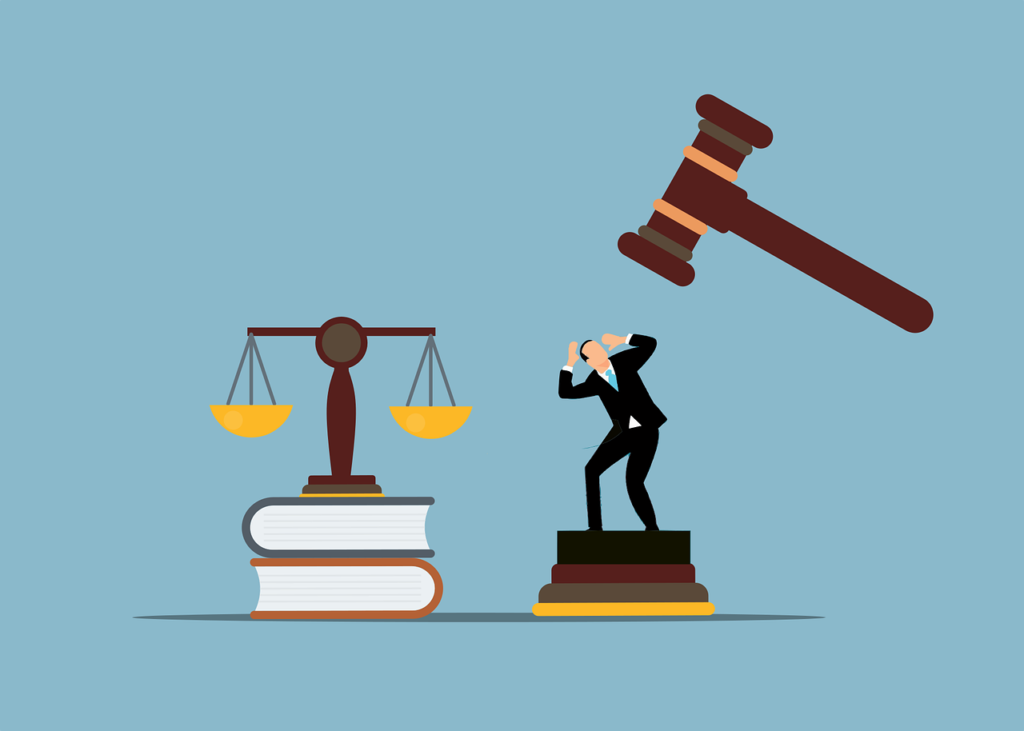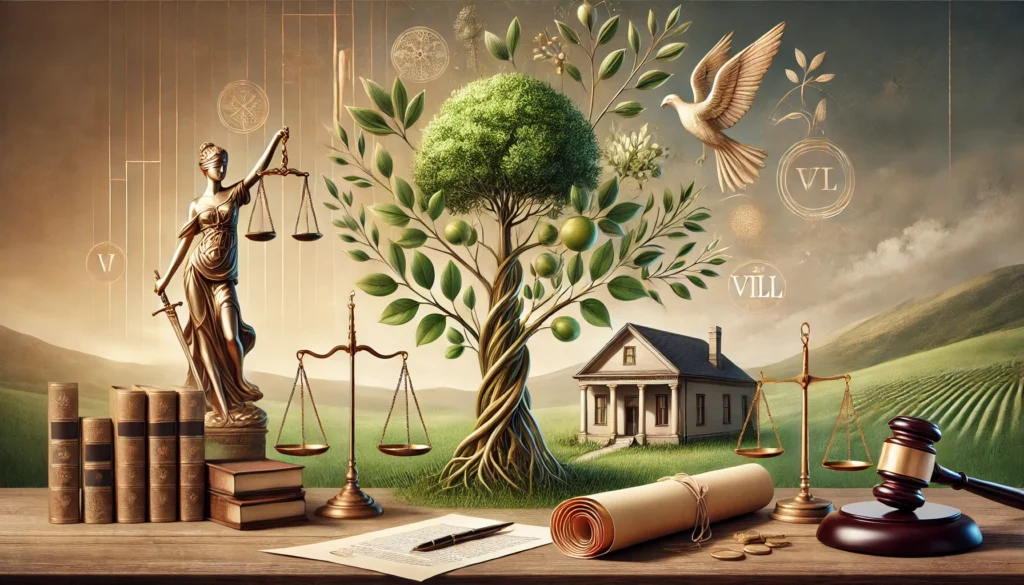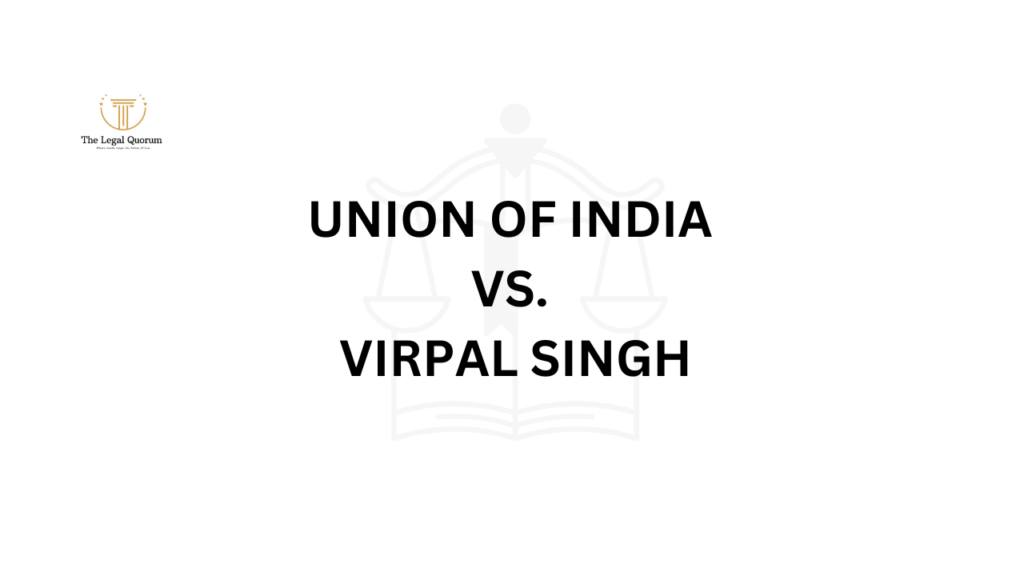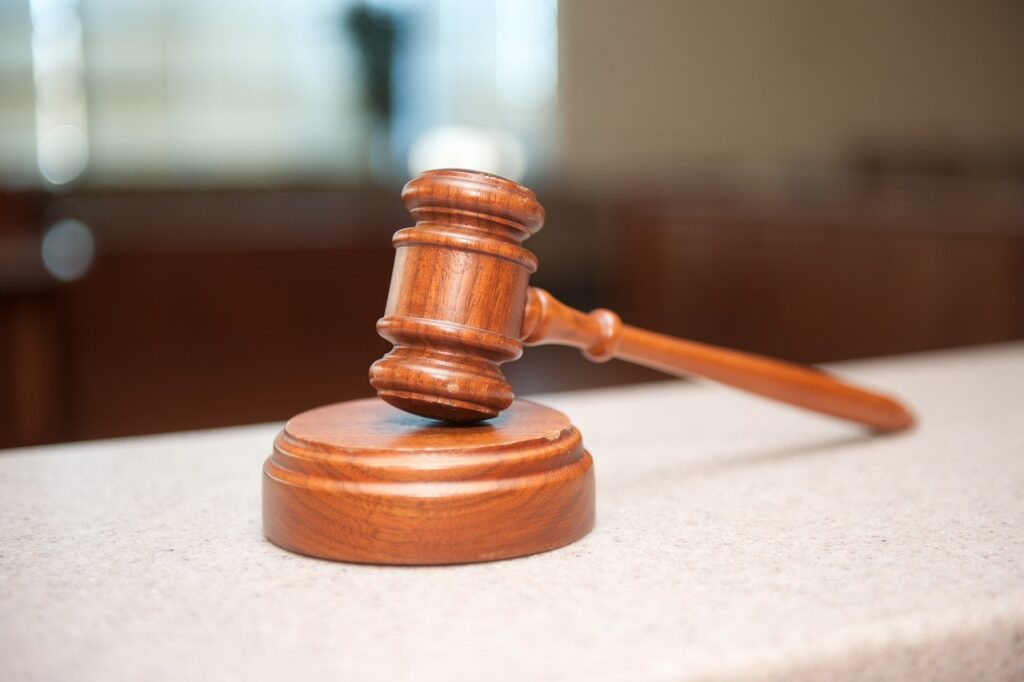Published On: 20th June, 2024
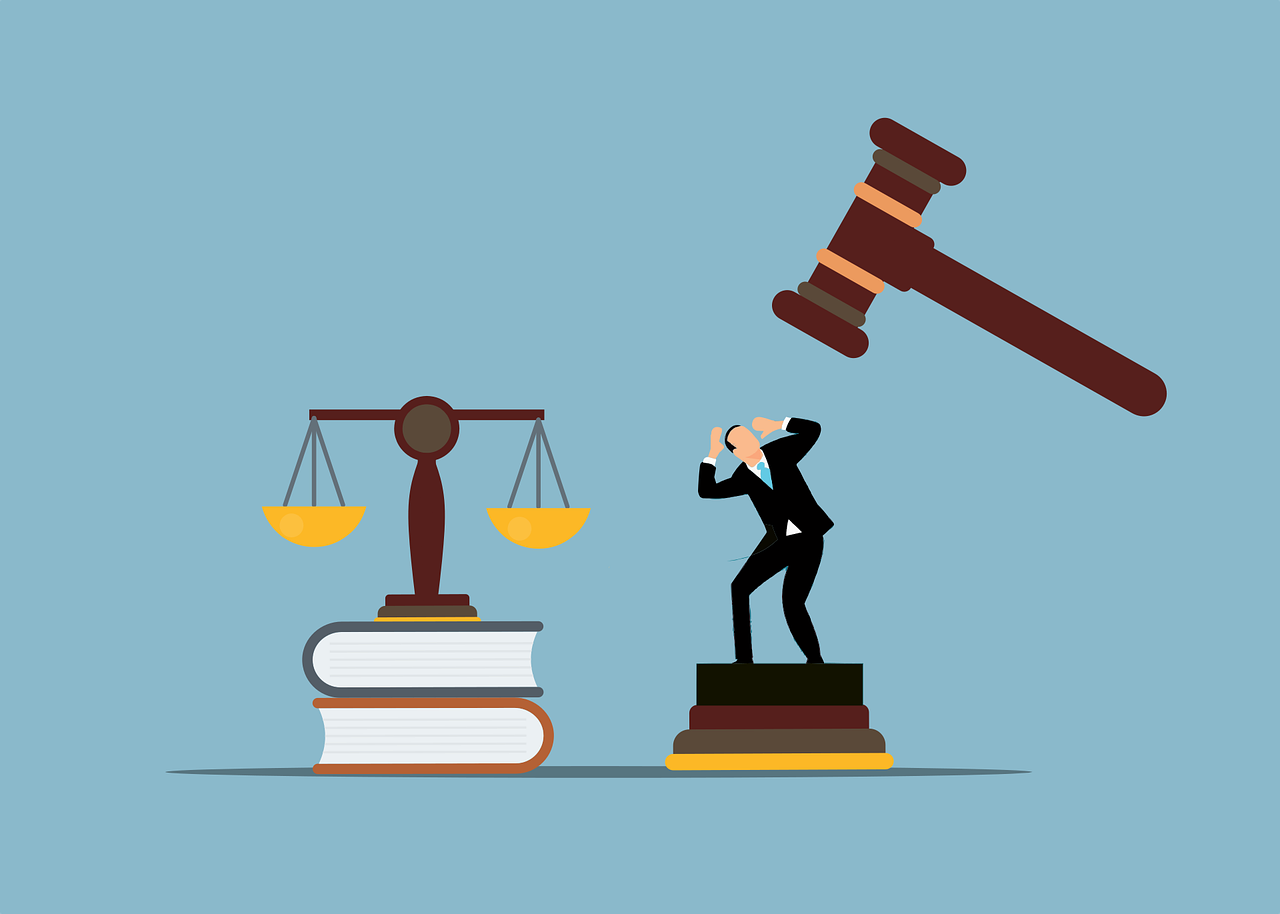
Authored By: Anish Kumar
Presidency University, Bangalore
Introduction:
Nations have considered a National Emergency as a fundamental tool since it provides a convenient mechanism to show a government to be too active and responsive to any crisis, whether it is a natural disaster event a terrorist attack, or a geopolitical conflict. During the event of history, these announcements have been harnessed to legitimize the deployment of resources and rationalize approaches to prevent danger to national security. Notwithstanding the thin surface of the reserved role in crisis resolution, the legal and political arenas are very complex and hold consequences for democratic government.
The essay focuses on the two-sided nature of emergency measures, praising them as an implementation of urgent measures in times of crisis and warning that these can act as serious instruments of erosion of democratic principles in the state. At their inception, national emergencies were not intended to last long since they were meant to be the cure for the immediate problems but rather they have served as the major tools for the executive authorities to centralize the power, bypass the legislative control, and infringe upon the civil liberties. Therefore, the core thrust of this article is that unchecked exertion of emergency powers can be dangerous for the systems of democracy inside a country.
With the issue of national emergencies under our scrutiny, the balance of powers between the branches of government, limits of executive powers, and how they can restrict individual rights become the question thrown into a shade. The current article will constructively discuss the historical foundations, legal facets, and current predicaments by scrutinizing them; this article sheds light on how national emergencies and democratic governance interact intricately. Eventually, it demands (the right combination) clear thinking about emergency powers and constant vigilance by those whose responsibility it is to protect democratic values, unlike a situation of crisis.[1]
Legal Framework and Executive powers:
The legal grounds for instituting a State of Emergency implicitly vary among places, but they mostly consist of constitutional provisions as well as the powers derived from the statutory law. There are plentiful democratic nations ascribed, including the United States, that provide a broad constitutional framework for executive acts before unveiling specific statutes to curb the executive instruments during times of emergencies. In the example of the U.S., the President possesses the constitutionally stated powers of the Commander-in-Chief and has the National Emergencies Act of 1976 to provide statutory authority to the President to declare and terminate national emergencies.
A major aspect of national emergencies is that the authority is granted in an unusually broad format to the executive branch. If the executive authority is always in an emergency, it will frequently receive very broad powers to take very harsh measures that will be perceived as absolutely necessary to neutralize the perceived threat. These powers may include sending troops and allocating necessary resources, as well as introducing rules and regulations to limit the rights enjoyed by the citizens.
That, on the one hand, moral suasion comes with a certain responsibility to demonstrate accountability in this process. Emergency regulation may go to circumvent legislative control and ensure due process, thus allowing the executive to act unilaterally and without control. Furthermore, the executive power gets benefitted more than others, when any emergency arises. Being the supreme power, the role of the legislature and judiciary with their check and balance mechanism gets undermined, which even weakens the balance of powers to save individual rights.
Since the authoritative powers that emerge in emergencies are of a legislative kind, these need specific observation and monitoring in regard to possible abuses and protecting democratic principles. Urging for a prompt but judicious strategy in the circumstances of emergency, it is no less important to harmonize with the infringement that the measures demand. The measures are to be transparent and to be supervised by the parliamentary or judicial bodies. While scrutinizing the law covering the regional powers and the effects that may come with it, decision-makers can seek to establish a more robust and reputable system of governance that keeps alive democratic values even in hard times.
Erosion of Civil Liberties:
National emergencies, if they are as they are described, mostly, become the reasons for the claim, that governments should be allowed to stop or to limit civil liberties and constitutional guarantees. On the one hand, although the surveillance regime represents itself as an attempt to maintain public safety and order, these emergency measures challenge a safe and secure balance between individual freedoms and collective security which can infringe on people’s rights.
Civil liberties diminishment is one of the key consequences of the establishment of a national emergency that usually results in declaring powers that are beyond executive and which endow the presidency with the authority to adopt extraordinary measures. Such measures can take various forms such as the imposing of curfews, limiting dining out, enforced scalp down of free speech, and for example, waving of habeas corpus rights. This kind of action is often present under the pretext of curbing the emergency, but it can have numerous impacts on the exercise of fundamental rights and freedoms as embodied in constitutions and international human rights charters.
Since the old times, there have been too many cases that can be pointed out where some emergency measures have been brought to leadership and power hogs that violated basic human rights. One of the most ferment flight cases is the establishment of martial law in various States when they experience political turmoil or an armed conflict. Martial law often encompasses the suspension of normal legal procedures, the operation of a military regime, and finally, the stopping of dissent by curtailing freedom of expression, mass arrests, and extra-judicial killings among others. For instance, Martial Law in the Philippines under the Marcos rule in the 1970s resulted in violation of humanitarian principles, including torture, disappearances, and shoot-to-kill format of executions.
Likewise, the September 11, 2001 terrorist attacks inflicted a shock force on the U.S. administration and resulted in the immediate enactment of counterterrorism measures that were broad, such as the USA Patriot Act which gave the surveillance powers of the government more grounds compared to the civil liberties that were then curtailed for the sake of national security. These actions made civil libertarians worry if such degree of intrusion was acceptable and whether the measures were discrimination issues in close relation much like with the National Security Agency (NSA) revelations of illegal wiretapping and long-term detention at Guantanamo Bay without a trial or charges.
Not only so, but the emergency powers that are done by the governments in tackling the COVID pandemic have also created worries about government overreach and the erosion of civil liberties. Recognizing public well-being as the primary goal, lockdowns, and quarantine orders have been recognized as a necessary component to contain a virus, but mixed with measures that restrict freedom of movement, assembly, and expression, they have often become a platform for power abuse without a sufficient safeguard.[2]
Impact on Democratic Institutions:
Often, national emergencies breed devastating implications for democratic institutions across the state, be it the legislature, the judiciary, or the free press, in that these governments are being stripped of their powers, and functioning is hampered in the interim. Through the grand incidental power bestowed at times of emergencies, the executive can abridge the system of checks and balances and diminish the democratically authorized mechanisms that give rise to comprehensive complications in the doctrine of the rule of law and the democratic rules of the game.
Legislature:
Legislation bodies face the pressure of expediting legislation passing in times of emergency along with broad authority and possibly giving the chance to the executive branch to react to the crisis. Such a situation is likely to be followed by the weighing of the legislative power in favor of the executive to the detriment of the legislature as a branch of power to counterbalance the executive actions.
Along with this, the executive branch can be empowered through the use of emergency measures to bypass legislative approval, which may include the deployment of executive orders or decrees, thus circumventing the regular legislative procedure and consequently policing the opportunities for democratic arguments and control. In addition, the crisis may result in a compromise of the legislative bodies’ power by them choosing to hand control over to the executive leadership, thus impairing their stature as independent and coequal branches of the government.
Judiciary:
Emergencies can be a means for providing the executive to newer areas of authority and influenceability of judicial bodies. For example, emergency statutes may contain provisions curtailing judicial review or waiving immunity after these measures were taken during the emergency period. The judicial branch can be in an unenviable situation, dealing with the balancing act of constitutional guardianship and limiting the executive power during times of emergency, especially if the former rights and freedoms are being infringed. On occasion the judges may need to pursue the fulfillment of officers’ conflicting goals, the national security in particular and individual freedoms; and the environment where the executive branch predominates it is generally nonconditional.
In addition, the caseload rises due to the court hearing the various cases challenging measures that are being used for the purpose of emergency response may end up placing a strain upon judicial resources not to mention that it may lead to the delayed adjudication of the cases which are not related to the emergency response as a result of which the timely administration of justice may be undermined.
Free Press:
National emergency, similarly, tends to be followed by harsh consequences against journalists and suppressing freedom of the press and individuals. The governments might limit or censor the extent of media covering the crisis, repress critical voices, or even form laws against those who want to speak freely about the emergency subject.
Journalists and other media sources are potentially subject to hostility, storming, and legal accountability for writing about governmental actions or a critique of the steps taken for emergency cases. This can rob the press of its watchdog role, diminish the government denizens” transparency, and lead to the provision of false or incomplete details. Along with that, emergency measures may lead to tightening control of the government over information dissemination or production of propaganda, consequently affecting the independence and accountability of such media as the tool to counterbalance the government’s power.
Ultimately, national emergency situations have a great capacity to alter democratic institutions. It mainly happens by amplifying the government’s capabilities, lowering legislative and judicial control, and decreasing media freedom. The infringement of the separation of powers principle and the weakening of people’s ability to hold authorities accountable are major concerns of the rule of law and its key underlying principles which protect the core fundamental rights and freedoms. It becomes key for societies based on democracy to keep watch over these, focusing on the constitutional principles, and the security of democratic organizations in both good times and in times of crisis. In the same way, checks and balances like transparency, accountability, and the court of law are vital in ensuring that the measures of civil emergency are proportionate, and necessary and respect democratic norms and values.[3]
Case Studies and Comparative Analysis:
United States:
Case Study: The September 11, 2001 terrorism forced the U.S. administration to declare a state of emergency, which changed the course for many counterterrorism laws, including the USA PATRIOT Act and others. These procedures tend to increase the limits on the exercise of power by an executive authority, strengthen the surveillance capabilities, and limit the civil rights that were introduced for the sake of security.
Comparative Analysis: The United States has a legal framework for national emergencies based on the National Emergencies Act, which dates to 1976 and provides a procedural mechanism that prescribes the processes of declaring and ending emergencies. Though such authority was also provided for the executive branch the absence of significant limits and transparency in this system has led to the apprehension of a possible abuse of power and violation of constitutional guarantees.
Philippines:
Case Study: The invasion of Martial Law by President Ferdinand Marcos in 1972 caused widespread human rights abuses including suppression, mass arrests, extrajudicial killings, and other forms of violation of rights. Martial law was considered a necessary measure against the possibility of rebellion and subversion of the government but was meant for the sole purpose of consolidating authority and subduing political dissenters.
Comparative Analysis: The Philippines has a long history of going through martial law durings which has become an indicator of how easy it is for institutions built to uphold democracy to get corrupted during times of crisis. The 1987 Constitution does contain provisions to prevent a relapse of the Marcos Era abuses yet it is still difficult to institute accountability measures and enforce human rights.
Turkey:
Case Study: After the unsuccessful coup in 2016, the government of Turkey used a state of emergency and came up with a wide range of emergency measures, some of which are mass arrests, purges of government institutions, and restriction of perspectives. The most common criterium of such studies was the goal of separating enemies of the regimes and corruption of the democratic processes.
Comparative Analysis: A Turkish legal framework offers an opportunity for declaring a state of emergency under particular circumstances which in turn provides extra means to the government for restoring public order and security. Nevertheless, the indefinite period of emergency measures and the government’s endeavor to use emergency powers in the crushing of opposition are the ones who have warned about the democratic regression and the loss of fundamental rights guarantees.
European Union:
Case Study: The EU member states became mouthpieces for a state of emergency and the emergency measures as ripples of Covid-19 were taking their toll on lives. One of these measures has become quarantine measures, shutdown of businesses, and suspension of some of the personal rights and freedoms.
Comparative Analysis: EU member nations are empowered to call such emergency measures through respective national legislations, but the EU fails to have generalized tools for crisis management. Although it has provided the impetus for coordination in response to the pandemic and compliance with EU law and human rights standards, the EU has led the member states in implementing these strategies.
Safeguarding democracy in a time of crisis:
Maintaining democracy in critical circumstances involves policy initiatives that legally and institutionally mitigate the risk of restricting civil liberties in national emergencies. Among the measures that can be taken to boost democratic resilience, the parliamentary oversight structures have to be bolstered. Providing the executive bodies with a higher degree of control and more active involvement of the legislative branch while monitoring emergency actions is essential. Deciding upon this can be done by institutionalizing reporting duty to the legislature at tedious intervals on the process of emergency powers according to legislative review and sanction of emergency declarations and actions. Besides that, by creating sunset clauses that stipulate that emergency legislation will be automatically canceled after a given time unless explicitly renewed by the legislature, this helps in preventing indefinite extension of emergency powers, thus allowing from time-to-time review and reassessment of the necessity and relevance of the provisions.
Moreover, guarantees judicial control by elaborating the doctrine of the rule of law for emergency measures. Judicial control should also be applied to managerial responsibilities to ensure that there is adherence to the constitution’s human standards and the rule of law. To have fair and efficient judicial mechanisms judges would have to fast-track cases challenging compulsory measures which would guarantee proper and on-time consideration and avoid ongoing infringement of the rights and liberties. It is crucial to give emergency cases settled on court dockets at a rapid pace and depict a speedy process via appeal that can impress upon the resolution of legal issues in the quickest possible time as it not only protects the rights of individuals but also safeguards the integrity of legal systems.
Also, public trustworthiness must remain the primary goal during emergencies if a democracy is to be saved. Such requirements as transparency should be imposed to avoid such phenomenon, as well as to make the existence of the emergency declarations, measures, and their implementation public. Citizens will be entitled to get clarity on justifications for emergency actions, their causes on one hand and rights and freedoms on the other, and participation and feedback mechanisms. Formulating countrywide oversight agencies comprised of civil society representatives, professors from the university as well as members of the professional jurisdiction could be a source of impartial assessments and scrutiny of the government during emergencies that use the power. Consequently, the accountability and development of trust in democratic institutions would be guaranteed.
capacitating the institutions to grow steadily and educating the citizens are the vital ingredients of making democracy more resilient. Funding the powers of democratic institutions for a better understanding of emergencies and the preservation of democratic values and norms is fundamentally needed. Training facilities, resource education, and technical support can not only strengthen the capacity of these officials to deal with crisis situations but also aid them in performing their duties effectively. Publications discourses and raising awareness among the populace about their rights and responsibilities during times of crisis are essential. Remitting the people with practical information on emergency guidelines, legal safeguards, and alternative channels where they can redress the matter of human rights violations strengthens citizens to actively participate in democracy and also hold authorities to account.[4]
Conclusion:
To sum up, the investigation of the contravention of environmental protection laws and competition law involves vital implications about the intricate nature of the current legal disputes. Although national emergencies cannot be averted to protect lives and ensure the preservation of democracy, this also poses a threat to fundamental democratic principles and institutions. Civil rights violations, executive emergency powers, and in fact, democratic control are signs of the time to reform legal and institutional mechanisms to protect democracy during such a crisis.
Though national emergencies undermine the fragile balance between environmental sustainability and competition law, creating an environment where legal uniformity and competition promotion are intertwined is the only working mechanism for the mitigation of the risks. Introducing environmental aspects in competition law evaluations, i.e. merger reviews, as well as the creation of leniency programs that have monetary rewards to organizations that comply with environmental regulations are the first and foremost steps toward this target. Given the environmental considerations incorporated into the competition law frameworks, the stakeholders can implement the laws that regulate sustainable economic practices alongside environmental protection needs.
Nevertheless, the unionist faces the responsibility of consolidating the coordination of all individuals involved to achieve this aim. Lawmakers need to be legislators who embody the interdependent nature of economic and environmental goals stipulated in the law and legal practitioners should favor the interpretations and legal actions that put sustainability among the very first priorities. Furthermore, an effective policy mechanism requires close cooperation between countries, businesses, NGOs as well as international organizations so as to address the systemic issues and promote the corporate culture in a capitalistic world.
In view of climate change and environmental degradation which are both existential threats humanity is facing soon is like later. The call to action for policymakers and legal practitioners is clear: the creation of an ecosystem in which the areas where competition law and environmental sustainability overlap are given priority, in the interests of the present and future mankind. By adhering to this commitment, we will be able to create a roadmap to the brightest future, which is competitive, fair, and sustainable for each and every one.
Reference(s):
[1] https://haryanarajbhavan.gov.in/publication/my-tryst-with-emergency-the-darkest-phase-of-indian-democracy/#:~:text=In%20Independent%20history%20of%20India,serious%20threat%20to%20democratic%20values.
[2] PRAKASH, GYAN. “Into the Abyss.” Emergency Chronicles: Indira Gandhi and Democracy’s Turning Point, Princeton University Press, 2019, pp. 115–61. JSTOR, https://doi.org/10.2307/j.ctvc77msr.8. Accessed 1 May 2024.
[3] https://freedomhouse.org/report/freedom-world/2018/democracy-crisis
[4] https://www.cambridge.org/core/journals/american-political-science-review/article/abs/safeguarding-democracy-powersharing-and-democratic-survival/D31FFD5C1EE8DF14FA2C9BB8E73536EB

